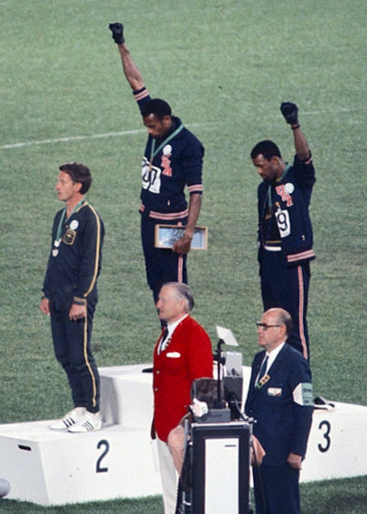Kareem Abdul-Jabbar Shows What Critics of Colin Kaepernick Are Missing

By:
Colin Kaepernick's controversial protest against racial inequality has inspired both backlash and passionate defense of his decision to sit out the national anthem.
Many people called the San Francisco 49ers quarterback's decision to sit out the anthem at a pre-season game against the Greenbay Packers disrespectful and "un-American." Now, a basketball legend has stepped into the conversation to defend him.
Basketball hall-of-famer Kareem Abdul-Jabbar wrote an opinion piece in The Washington Post defining patriotism and exposing the true tragedy in Kaepernick's protest.
Abdul-Jabbar wrote that political dissent is just as patriotic as saluting the flag.
"Patriotism isn’t just getting teary-eyed on the Fourth of July or choked up at war memorials. It’s supporting what the Fourth of July celebrates and what those war memorials commemorate: the U.S. Constitution’s insistence that all people should have the same rights and opportunities and that it is the obligation of the government to make that happen. When the government fails in those obligations, it is the responsibility of patriots to speak up and remind them of their duty."
The truly "un-American" thing about Kaepernick's protest is that he had to make it at all, according to Abdul-Jabbar.
"What should horrify Americans is not Kaepernick’s choice to remain seated during the national anthem, but that nearly 50 years after Ali was banned from boxing for his stance and Tommie Smith and John Carlos’s raised fists caused public ostracization and numerous death threats, we still need to call attention to the same racial inequities. Failure to fix this problem is what’s really un-American here."
Politics and American sports have a history together.
Athletes like Muhammad Ali, Tommie Smith, and John Carlos made brazen and controversial political statements in the name of racial equality and civil rights.
In 1966 Muhammad Ali refused to enter the military in the mandatory draft of the Vietnam War. He said that he didn't want to go shoot other people of color in the name of a racist America.
“My conscience won’t let me go shoot my brother, or some darker people, or some poor hungry people in the mud for big powerful America. And shoot them for what? They never called me nigger, they never lynched me, they didn’t put no dogs on me, they didn’t rob me of my nationality, rape and kill my mother and father. … Shoot them for what? How can I shoot them poor people? Just take me to jail.”
Ali was eventually arrested for his refusal to enlist and he temporarily lost his boxing license, according to the Atlantic.
During the 1968 Olympics in Mexico City, track stars Tommie Smith and John Carlos both made it to the podium for the same race.  Wikimedia Commons/ Angelo Cozzi (Mondadori Publishers) - wikimedia.org
Wikimedia Commons/ Angelo Cozzi (Mondadori Publishers) - wikimedia.org
Smith won the gold medal for the 200 meter event and Carlos won the bronze, only months after the assassination of Dr. Martin Luther King Jr., and during the emergence of the more militant Black Power Movement. During the "Star Spangled Banner" Smith and Carlos raised the black power fist in protest.
An analysis by The Washington Post says that 155 black Americans have been shot and killed by the police so far this year.
